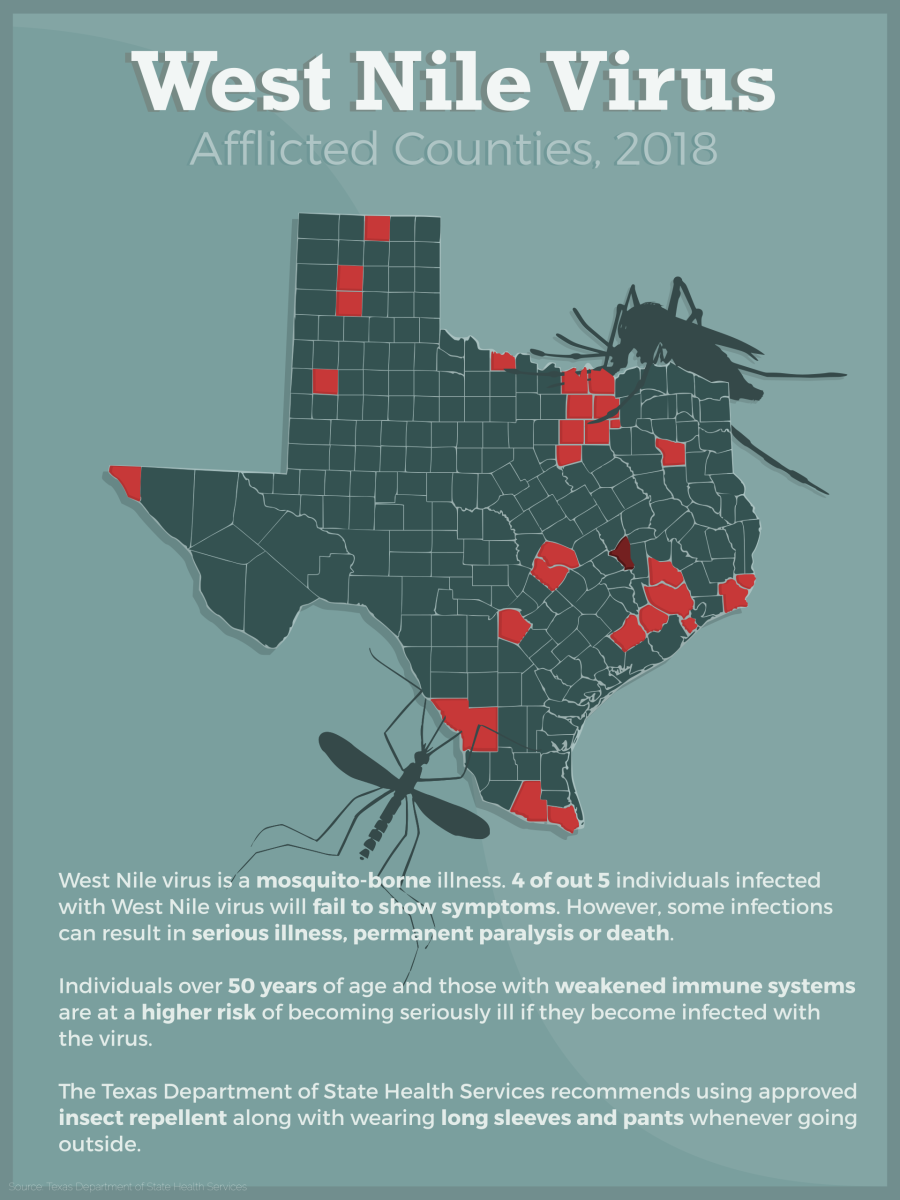Additionally, a pool of mosquitoes found in Brazos County during the week of Sept. 10 tested positive for the virus.
Alternate health authority for the Brazos County Health Department Dr. Seth Sullivan said the first person who tested positive for WNV has recovered, and humans testing positive for WNV is not as common as mosquitoes testing positive.
“There are some years where you can see them more than others,” Sullivan said. “It might have been 2012 or 2013 where we saw more cases in the summer, but we haven’t seen any in the past couple of years before this case.”
According to Sullivan, the symptoms of WNV include fevers, muscle aches, joint aches and flu-like illness. In more serious cases, people infected with the virus also experience headaches and meningitis.
“[To prevent getting WNV], you prevent the mosquito bite,” Sullivan said. “Wearing long sleeves, avoiding dawn and dusk, which are the times that mosquitoes are most likely to bite, and making sure that the area around you is free of standing water.”
“All mosquito season long, we do testing looking for infection that could be transmitted through the mosquito population,” Sullivan said. “We do our best to reduce mosquito populations through these outreach efforts.”
Although many types of mosquitoes can transmit WNV by biting humans, the southern house mosquito, or Culex quinquefasciatus, is the most common in the Brazos County.
Prepared pools of mosquitoes are submitted by the Gabriel Hamer Lab at Texas A&M to the Texas Veterinary Medical Diagnostics Lab for testing. The lab then uses the polymerase chain reaction technique to amplify any trace amounts of the virus’ DNA or RNA, and if there is any present in a pool of mosquitos, the test will be marked positive.
Kurt Johnson, environmental health specialist for the Brazos County Health Department, said the county is avoiding large scale pesticide use in favor of more long-term solutions.
“Pesticide spraying is usually the last resort in mosquito control [because] you can achieve only temporary relief,” Johnson said. “Mosquito control is best accomplished by source reduction, the elimination of breeding habitat around the home, and through the use of larvicide, available from both City of Bryan and College Station through their mosquito abatement programs.”




















